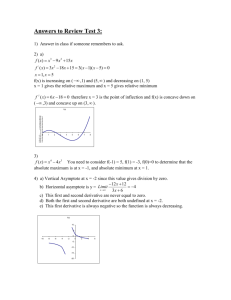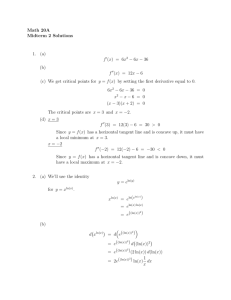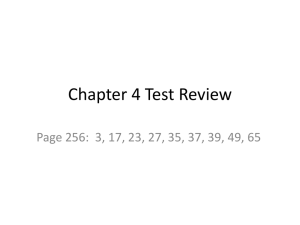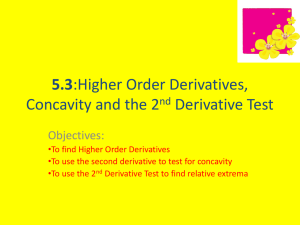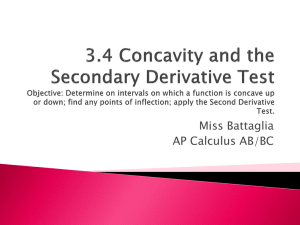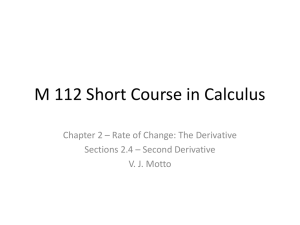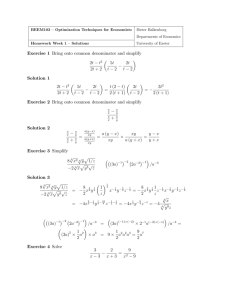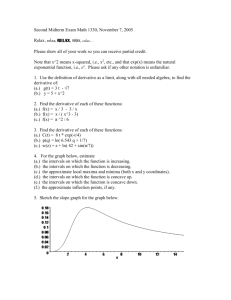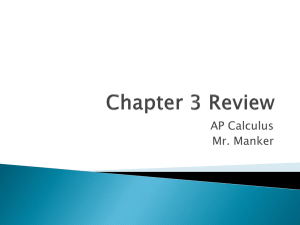1 st and 2 nd Derivative Tests
advertisement
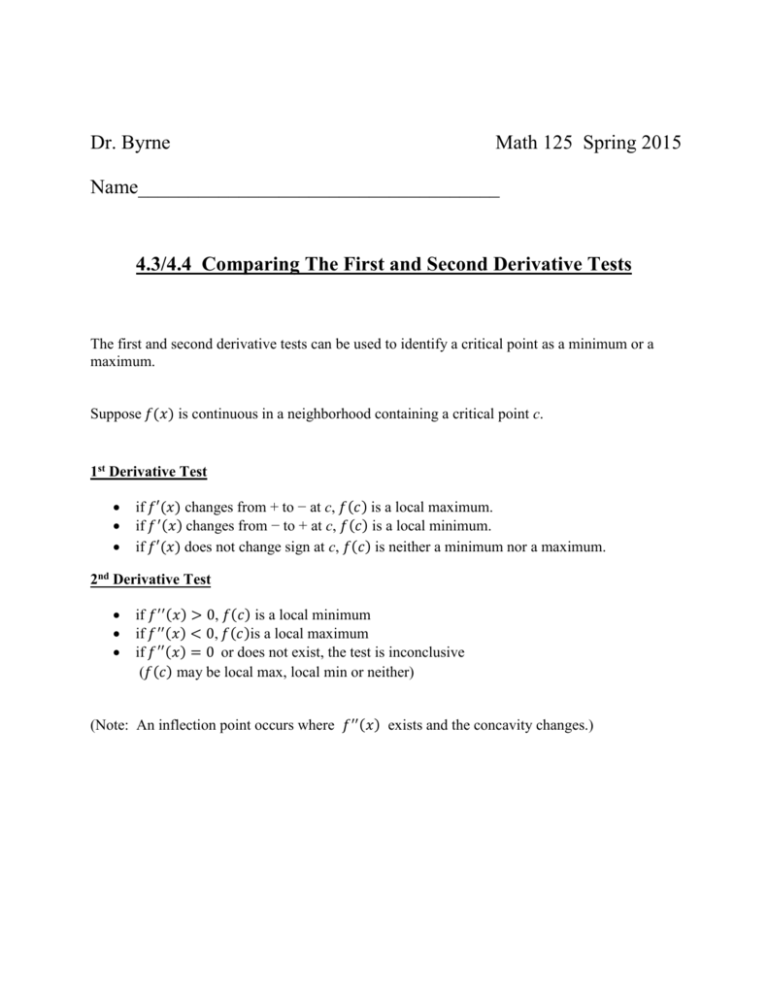
Dr. Byrne Math 125 Spring 2015 Name____________________________________ 4.3/4.4 Comparing The First and Second Derivative Tests The first and second derivative tests can be used to identify a critical point as a minimum or a maximum. Suppose 𝑓(𝑥) is continuous in a neighborhood containing a critical point c. 1st Derivative Test if 𝑓′(𝑥) changes from + to − at c, 𝑓(𝑐) is a local maximum. if 𝑓 ′ (𝑥) changes from − to + at c, 𝑓(𝑐) is a local minimum. if 𝑓′(𝑥) does not change sign at c, 𝑓(𝑐) is neither a minimum nor a maximum. 2nd Derivative Test if 𝑓 ′′ (𝑥) > 0, 𝑓(𝑐) is a local minimum if 𝑓 ′′ (𝑥) < 0, 𝑓(𝑐)is a local maximum if 𝑓 ′′ (𝑥) = 0 or does not exist, the test is inconclusive (𝑓(𝑐) may be local max, local min or neither) (Note: An inflection point occurs where 𝑓 ′′ (𝑥) exists and the concavity changes.) Example A: 𝑦 = 3𝑥 − 𝑥 3 1) On the graph provided, label all maxima, minima and inflection points (max/min/I). 2) Find all critical points of y: 3) First derivative test: a. Identify the intervals where y is increasing or decreasing: y increasing: y decreasing: . . y concave up: y concave down: . . b. What does the first derivative test tell us about each critical point? 4) Second derivative test: a. Identify the intervals where y is concave up or concave down: b. What does the second derivative test tell us about each critical point? Example B: 𝑦 = 𝑥 5 − 5𝑥 4 1) On the graph provided, label all maxima, minima and inflection points (max/min/I). 2) Find all critical points of y: 3) First derivative test: a. Identify the intervals where y is increasing or decreasing: y increasing: y decreasing: . . y concave up: y concave down: . . b. What does the first derivative test tell us about each critical point? 4) Second derivative test: a. Identify the intervals where y is concave up or concave down: b. What does the second derivative test tell us about each critical point? Example C: 𝑦 = 5𝑥 2/5 − 2𝑥 5) On the graph provided, label all maxima, minima and inflection points (max/min/I). 6) Find all critical points of y: 7) First derivative test: a. Identify the intervals where y is increasing or decreasing: y increasing: y decreasing: . . y concave up: y concave down: . . b. What does the first derivative test tell us about each critical point? 8) Second derivative test: a. Identify the intervals where y is concave up or concave down: b. What does the second derivative test tell us about each critical point?
